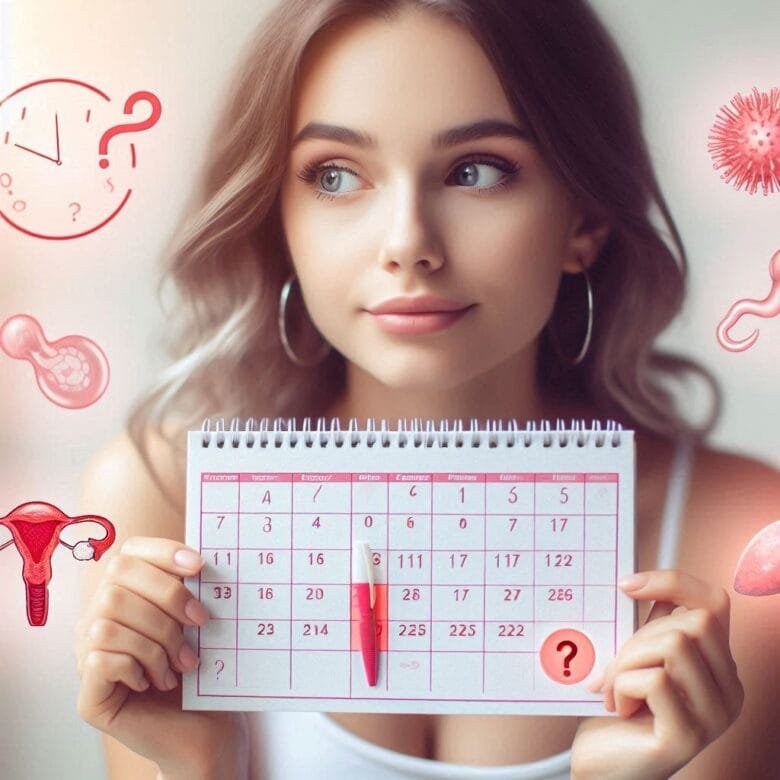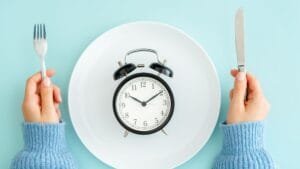Understanding the Menstrual Cycle
The menstrual cycle is a complex physiological process that typically lasts around 28 days, although variations can occur. It consists of several distinct phases: menstruation, the follicular phase, ovulation, and the luteal phase. Each phase is driven by intricate hormonal changes that significantly impact fertility and the potential for conception.
Menstruation marks the beginning of the cycle, during which the uterine lining is shed if fertilization has not occurred. This phase can last from three to seven days and is often characterized by menstrual bleeding. Following menstruation is the follicular phase, during which the pituitary gland releases follicle-stimulating hormone (FSH). This hormone stimulates the ovaries, leading to the maturation of ovarian follicles and the thickening of the uterine lining in preparation for a potential pregnancy.
Ovulation occurs around the midpoint of the cycle, typically day 14 in a 28-day cycle. During this phase, a surge in luteinizing hormone (LH) triggers the release of a mature egg from one of the ovaries. Understanding this timing is crucial when considering the question of can you get pregnant on your period. Although the likelihood is low, sperm can survive inside a woman’s reproductive tract for up to five days. Consequently, if a woman has a shorter cycle and ovulates shortly after her period, there is a minuscule chance of becoming pregnant.
The final phase of the menstrual cycle is the luteal phase, during which the ruptured follicle transforms into the corpus luteum, producing progesterone. This hormone is essential for maintaining the uterine lining for implantation. If fertilization does not occur, hormone levels drop, leading to the onset of menstruation and the beginning of the cycle anew. Overall, the phases of the menstrual cycle play a crucial role in understanding fertility and the chances of conception, particularly in relation to menstruation.
The Science of Ovulation and Fertility
Understanding the relationship between ovulation and fertility is crucial when considering the question, can you get pregnant on your period? Ovulation is the process during which a mature egg is released from the ovary, typically occurring around the mid-point of the menstrual cycle, approximately 14 days before the onset of menstruation in a standard 28-day cycle. It is during this timeframe that the chances of conception are highest, as the egg must meet viable sperm for fertilization to occur.
Sperm, once deposited in the female reproductive tract, can survive for up to five days, making the days leading to ovulation critical for those trying to conceive. If intercourse occurs in the days leading up to ovulation, sperm may remain viable until the egg is released. Conversely, the lifespan of the egg is relatively short; if not fertilized within 12 to 24 hours post-ovulation, it will disintegrate and be absorbed by the body or expelled during menstruation.
It is important to note that the timing of ovulation can vary significantly. Factors such as stress, hormonal imbalances, underlying health conditions, and even age can influence ovulation patterns. For instance, women with irregular menstrual cycles may experience unpredictable ovulation timing, complicating their ability to determine fertile windows accurately. Furthermore, some women may experience ovulation during their period if their cycles are shorter than 28 days or if they have a particularly heavy flow that overlaps with the ovulation phase.
In light of this information, the notion that pregnancy cannot occur during menstruation is not entirely accurate. While the likelihood is lower, it remains a possibility, especially for women whose ovulation occurs earlier in their cycle. Understanding these biological processes is essential for those who are planning a family or seeking to prevent pregnancy.
Can You Really Get Pregnant on Your Period?
The question of whether one can get pregnant on their period is a complex issue that intertwines various aspects of reproductive health. Traditionally, menstruation is perceived as a time when the chances of conception are minimal. However, it is essential to consider various factors that could influence this understanding. For instance, sperm can survive within the female reproductive tract for up to five days. Therefore, if a person engages in unprotected intercourse towards the end of their period, sperm may still be viable when ovulation occurs a few days later. This scenario can consequently lead to conception, making it plausible to conceive during one’s period, especially if ovulation occurs earlier than anticipated.
Irregular menstrual cycles also contribute to the complexity of this issue. Individuals with unpredictable cycles may find it challenging to determine their ovulation window accurately. As a result, the likelihood of becoming pregnant while menstruating can increase significantly. Research indicates that some women may experience what is known as “breakthrough ovulation,” where ovulation occurs during or shortly after their period, creating an opportunity for sperm to fertilize an egg. This phenomenon underlines the importance of understanding one’s cycle pattern and monitoring potential ovulation signs closely.
Furthermore, myths surrounding menstruation often lead to misconceptions about fertility. Many assume that having intercourse during menstruation guarantees protection against pregnancy. However, medical experts assert that relying solely on the assumption of low fertility during this time can be misleading. A more prudent approach is to consider the menstrual cycle’s entirety, acknowledge individual variations, and utilize reliable contraception methods if avoiding pregnancy is a priority.
Considerations and Prevention
Understanding the intricacies of one’s menstrual cycle is crucial for informed decision-making regarding pregnancy and sexual health. It is a common misconception that engaging in sexual intercourse during menstruation poses no risk of conceiving. While the likelihood is relatively low, it is crucial to recognize that it is not entirely impossible. Sperm can survive within the female reproductive tract for up to five days, which means that if ovulation occurs shortly after the menstrual period, there is a potential for pregnancy. Therefore, the question, “can you get pregnant on your period?” must be approached with caution and, ideally, preventive measures.
There are several contraceptive options available for those who wish to actively prevent unintended pregnancies. Barrier methods, such as condoms, not only help in preventing pregnancy but also protect against sexually transmitted infections (STIs). Hormonal contraceptives, including birth control pills, patches, and IUDs, can regulate menstrual cycles while effectively preventing ovulation. Such methods can create a more predictable cycle, allowing individuals to better understand their fertility patterns and reduce the risk of unintended conception.
Another key consideration is tracking one’s menstrual cycle. Regularly noting cycle length, flow, and any variations can provide insight into ovulatory patterns and fertile windows. Certain apps and fertility awareness methods are also available to assist individuals in identifying their most fertile days, thereby empowering them to plan or prevent pregnancy effectively. Understanding one’s own body is vital for reproductive health and can facilitate a more informed approach to sexual activity during menstruation.
In essence, while the risk of becoming pregnant during menstruation is generally lower, it is essential to prioritize effective contraception and an understanding of one’s body and cycle.



